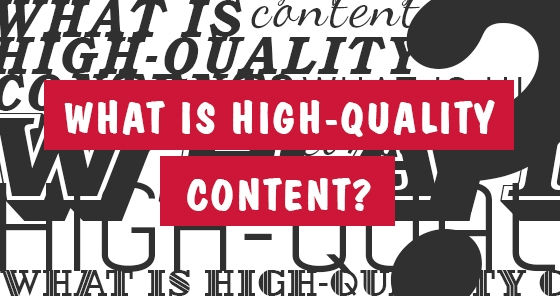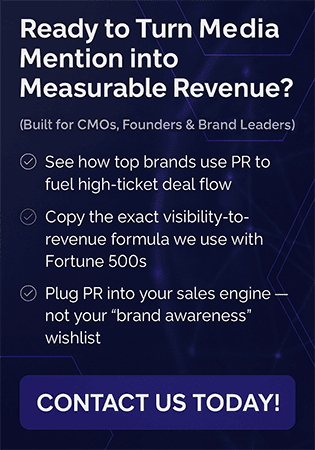With the recent changes to Facebook’s algorithm, many businesses are asking themselves how they can tweak their current online marketing strategies in order to stay in news feeds and on consumers’ minds.
One of the biggest takeaways from Facebook’s latest announcements is that links to high-quality content will be given preferential placement over images and posts that don’t include links. This simple statement has set the stage for an explosion of content in the world of online marketing.
Content marketing was incredibly important before, but now it’s an absolute imperative. Garnering Facebook engagement via memes or even via genuine conversations with your audience will no longer be a viable option, if your posts don’t involve links to high-quality content.
But therein lies the problem. What exactly is “high-quality content?” Or more to the point, what does Facebook think high-quality content is?
Other than telling us that they want to become their users’ go-to source for news, Facebook gives no specific guidelines as to what they consider high-quality. This is no Google algorithm change, packaged with advice to help marketers understand the new system. Marketers are on their own here and will have to go through a process of trial and error to see what works.
But there are some parameters we can use to define high-quality content – and these are universal, Facebook or no Facebook.
Any content that succeeds on Facebook will fit within each and every one of the following categories, regardless of what else it encompasses. So as you’re working out your content marketing strategy, make sure you can place a checkmark next to each of these guidelines for every piece of content you plan on creating.
1. You define what “high-quality content” means for your brand. The problem with looking for quality is that it’s subjective. It’s different in different situations, and different people would describe it in different ways – but everyone knows it when they see it. As part of your overall online marketing strategy, then, you must be the one to define what high-quality content means for your company. Maybe it means scholarly pieces on the latest research, or maybe it means tongue-in-cheek satire. It could be conversational and friendly or irreverent and hilarious. But once you define it, continue to use that as the standard against which you measure all your content.
2. High-quality content is trusted. This statement can put companies into a catch 22-like situation – in order to be considered high-quality, content needs to be a trusted resource, but in order for it to be a trusted resource, it needs to be high-quality. Think about your own go-to sources for authoritative information about your industry. You trust their content, or you wouldn’t frequent their sites. Why do you trust it? Is it because they provide consistency? You can always count on them to have the latest industry news, delivered in a consistently professional manner, right? Or maybe you love them for their unique, creative take on the day’s topics – they never fail to make you think, and maybe even make you laugh? You trust them to deliver a certain type of content, and when they do, consistently, you come back for more. Aim for consistency in your own content to build trust.
3. High-quality content is not sales-focused. This is not to say that you shouldn’t use any promotional content in your online marketing efforts – but its place is not in your blog. Content that you use to create and deepen relationships with your online audience should be focused on them and their needs, not on you and yours. It should be tailored to your audience, and content marketing should be thought of as a service to them, rather than as a means of selling to them.
4. High-quality content requires an investment. High-quality writing cannot be obtained by outsourcing to the lowest bidder, or even by handing the task to an already overworked staff member. Producing high-quality content takes time, and failing that, money.
5. High-quality content is unique. How many blogs do you see on a regular basis that simply regurgitate – or even worse, cut and paste – other people’s content? Of course, it’d be lunacy to suggest that you never talk about the same things others are talking about – you’d run out of things to say pretty quickly. But every piece of content you create should provide your own unique take on the subject, from your own unique perspective and experience.
6. High-quality content is useful. Whether it solves a problem, explains something complicated, teaches readers how to do something, gives them new insight, or even just makes them laugh, high-quality content provides something of value to your online audience. And because it’s truly useful, it instantly becomes shareable, as well – pure gold, in online marketing terms. Incidentally, that’s what Facebook likes to see – lots and lots of sharing.
Creating content that fits these parameters will stand you in good stead – not just on Facebook, but on every social media platform, in your marketing emails, and in your blog. So no matter what algorithm changes Facebook, Google, or any other online giant throws your way, you’ll be able to rest easy in the knowledge that your content is universally optimized – or to put it another way, high-quality.





